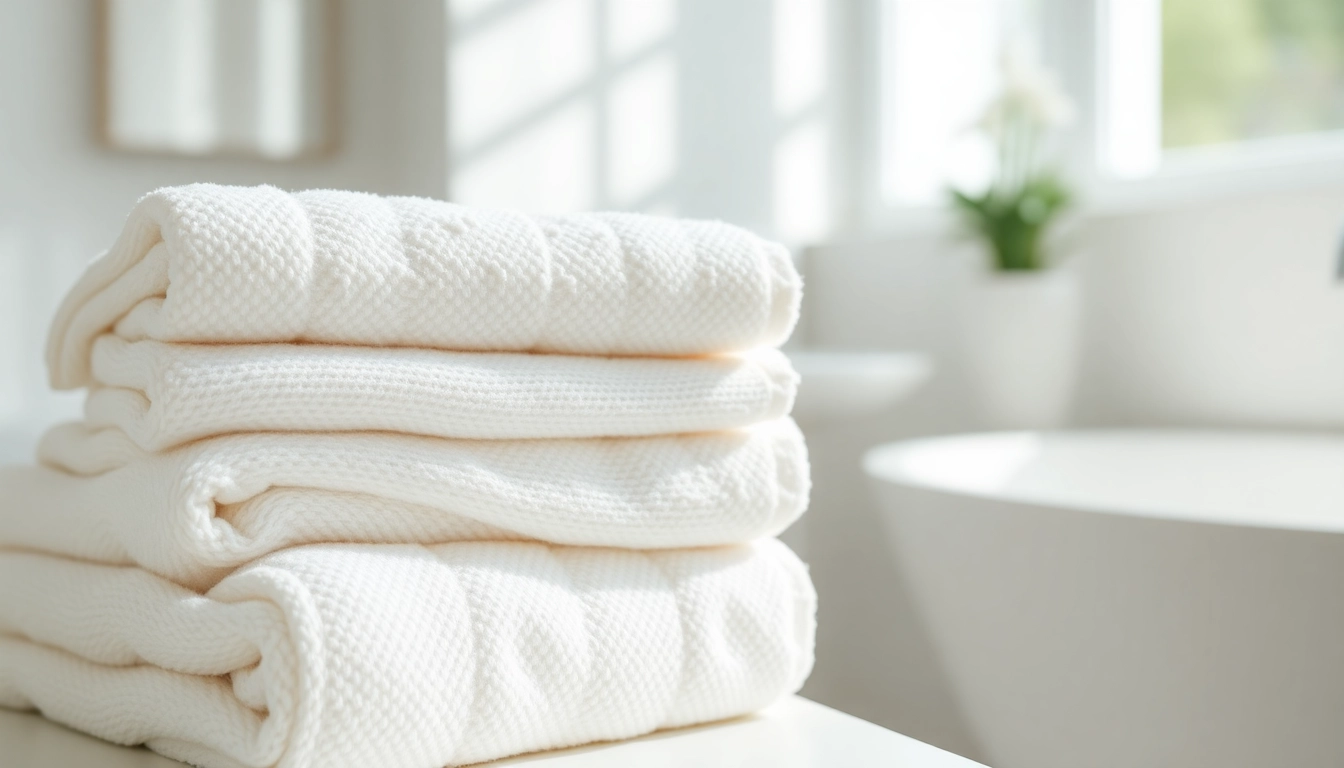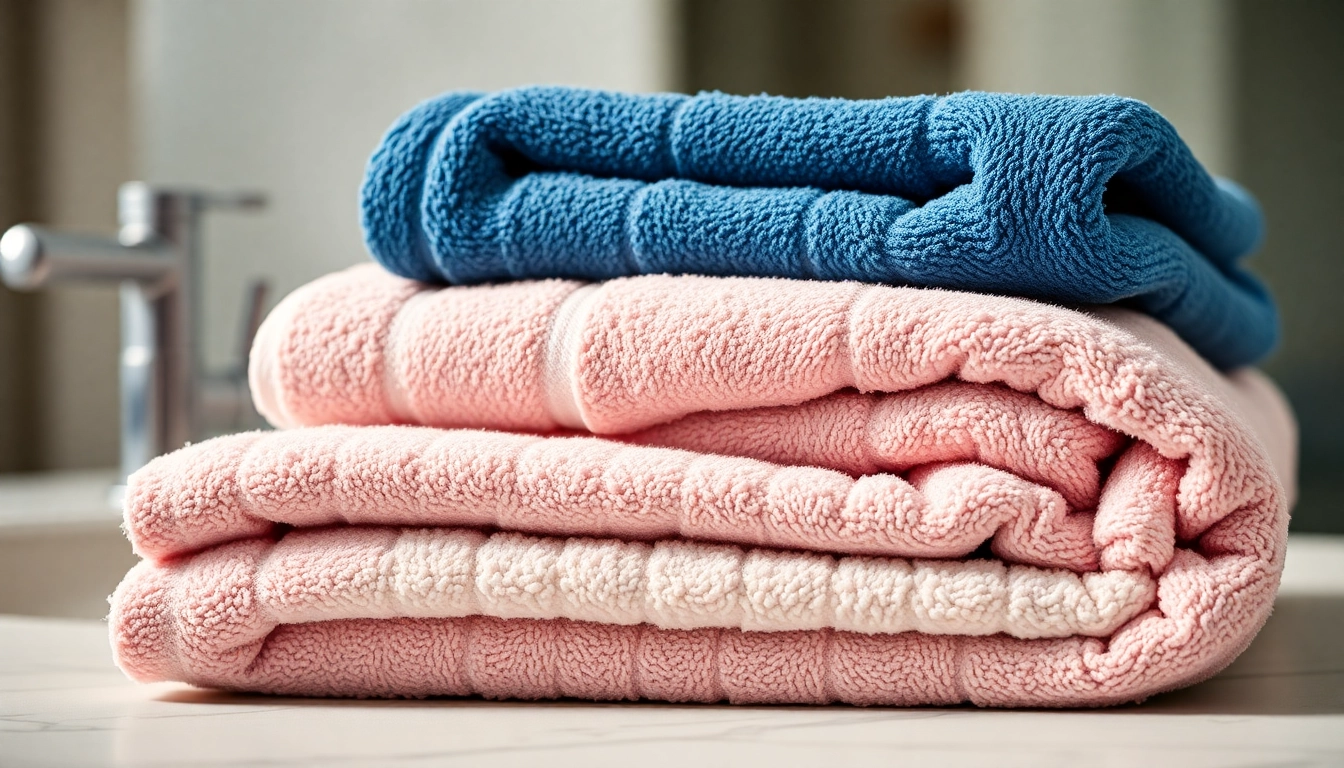Introduction to Cotton Towels: Crafting Comfort
In the realm of bathroom essentials, few items are as universally valued as cotton towels. Their ability to combine softness, absorbency, and durability makes them a staple in households worldwide. Whether it’s after a refreshing shower, a dip in the pool, or simply drying hands, the experience of using a high-quality cotton towel elevates everyday routines into moments of comfort and luxury. As consumers become more discerning, understanding what sets premium cotton towels apart becomes crucial to making informed purchasing decisions. Exploring the nuances of cotton towel fabric, care, and selection can significantly enhance your bathroom experience, ensuring you enjoy long-lasting, plush, and functional towels for years to come.
To discover the best options available, visit our dedicated Cotton Towels collection, where quality meets variety and affordability. This guide delves deep into the factors that make cotton towels a timeless choice and how you can select and maintain them for maximum benefit.
What Makes Cotton Towels So Popular?
Cotton towels have solidified their popularity primarily due to their natural comfort and practicality. Cotton is a natural fiber known for its soft texture, breathability, and high absorbency, all of which are essential qualities for towels. The fiber’s ability to wick moisture away from the skin without leaving behind residues makes it ideal for personal hygiene and wellness routines.
Moreover, cotton towels are versatile across different styles, from luxurious spa sets to everyday household essentials. They are eco-friendly, biodegradable, and hypoallergenic, appealing to environmentally conscious consumers and those with sensitive skin alike. Their durability also ensures that a good cotton towel can withstand numerous washes without losing its plushness or structural integrity.
Market research indicates that consumers prefer cotton towels over synthetic alternatives because of their superior comfort and health benefits, which potentially explains why they dominate the global market. Brands like Gul Ahmed and Nishat Linen have tapped into this demand, offering a wide range of options that blend quality, style, and affordability.
Types of Cotton Used in Towels
Long-Staple Cotton
This type of cotton, often used in premium towels, includes varieties like Egyptian and Turkish cotton. Its long fibers produce a smoother, stronger, and more lustrous fabric, resulting in towels that are softer and more durable. Long-staple cotton also facilitates higher thread counts, which enhances absorbency and plushness.
Upland Cotton
More commonly used in mass-produced towels, upland cotton has shorter fibers. While typically less costly, it can still produce quality towels if processed correctly. However, towels made from upland cotton might not match the softness and longevity of long-staple cotton variants.
Organic Cotton
Growing in popularity due to environmental concerns, organic cotton is cultivated without synthetic pesticides or fertilizers. Towels made from organic cotton tend to be softer and more environmentally friendly, appealing to eco-conscious buyers seeking sustainable products.
Key Features to Look for in Cotton Towels
GSM (Grams per Square Meter)
The GSM rating indicates the density of the towel’s fabric. Higher GSM (e.g., 600+) signifies thicker, more plush towels that excel in absorbency and softness. Conversely, lower GSM towels (around 400) are lighter and quicker to dry, ideal for travel or humid climates.
Thread Count
While often associated with bedsheets, thread count also influences towel quality. A higher thread count typically results in a finer, softer towel with a smoother surface. However, for towels, a balance is preferable; excessively high thread counts can sometimes reduce absorbency.
Absorbency and Drying Speed
The effectiveness of a towel is measured by its ability to soak up moisture and dry quickly. Factors such as fiber length, weave, and GSM impact these traits. Premium cotton towels with optimized weave and fiber quality tend to outperform lower-grade options in both aspects.
Choosing the Right Cotton Towel for Your Bathroom
Size and Thickness Options
Choosing the appropriate size depends on personal preferences and intended use. Standard bath towels typically measure around 70×140 cm, offering ample coverage, while hand towels are smaller (30×50 cm). Thickness, dictated by GSM, influences both drying capacity and comfort. For soaking, a higher GSM towel is preferable, whereas for quick use or portability, lighter options work better.
Color and Design Considerations
Colors and patterns should complement your bathroom decor, contributing to the aesthetic appeal. Neutral hues like white, beige, or grey offer timeless elegance, whereas vibrant or patterned towels can add personality and style. Remember to consider colorfastness; high-quality cotton towels maintain their vibrancy over many washes.
Identifying Quality Cotton Towels
To ensure you select genuine quality, examine the label for fiber type, GSM, and care instructions. Feel the fabric—top-tier towels are usually dense yet soft. Test absorbency by applying a small amount of water; a good towel should absorb quickly without residual moisture. Certifications like OEKO-TEX also indicate safety and quality standards.
Benefits of Investing in Premium Cotton Towels
Softness and Comfort
Premium cotton towels offer unmatched softness, providing a luxurious feel against the skin. The long-staple fibers and high thread counts contribute to this plush texture, making everyday routines feel indulgent.
Absorbency and Quick-Drying Capabilities
High-quality cotton towels excel in moisture absorption and dry faster than synthetic or inferior options. This not only enhances comfort but also prevents musty odors and mold growth, ensuring hygienic use over time.
Durability and Long-Term Use
Premium towels retain their softness and shape after multiple washes. The durable fibers resist fraying and pilling, making them an excellent long-term investment that withstands the rigors of daily use.
Maintenance and Care Tips for Cotton Towels
Washing and Drying Best Practices
Always wash cotton towels separately to prevent lint transfer and color bleeding. Use warm water and avoid harsh detergents; opt for mild or sulfate-free options. For drying, tumble dry on low heat or line dry in shade to preserve fabric integrity and colors.
Prolonging Towel Lifespan
To maximize longevity, rotate towels regularly and avoid excessive washing temperatures. Adding a small amount of vinegar during laundry can help maintain fabric softness and remove detergent build-up. Regularly inspect towels and replace those with fraying edges or thinning fabric.
Common Mistakes to Avoid
Common errors include using bleach frequently, which can weaken fibers, or washing towels with rough materials that cause pilling. Overloading washing machines also prevents proper cleaning and increases wear. Following proper care instructions ensures your towels stay luxurious and durable.
Top Brands and Where to Buy High-Quality Cotton Towels
Trusted Local and International Brands
Brands like Gul Ahmed, Nishat Linen, and The Linen Company are renowned for their premium cotton towels, offering a variety of styles, sizes, and GSM options tailored for diverse preferences. International brands, including Turkish and Egyptian cotton towel manufacturers, often set the standard for quality and craftsmanship.
Shopping Tips for Best Deals
Compare prices across different sellers, paying attention to GSM and fiber quality indicators. Look for sales during festive seasons or promotional events. Buying sets can often provide better value, and reading customer reviews helps gauge real-world performance and longevity.
Online vs. In-Store Purchasing
While online shopping offers convenience and broader selection, in-store shopping allows you to feel the fabric firsthand. When purchasing online, ensure the retailer provides detailed product descriptions, genuine certifications, and clear return policies to safeguard your investment.




